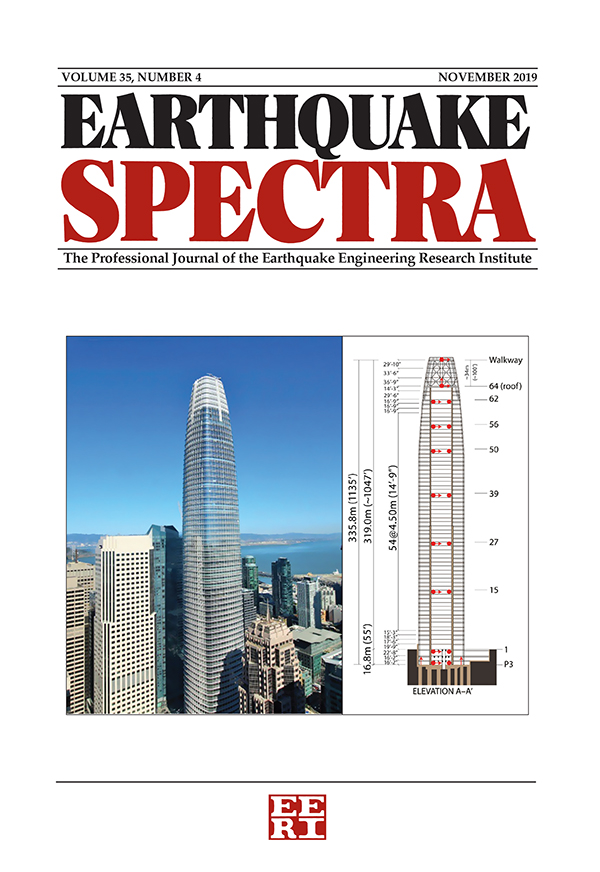基于利用合成孔径雷达相干时间序列的递归神经网络的大规模建筑物损坏评估:2023 年土耳其-叙利亚地震案例研究
IF 3.7
2区 工程技术
Q2 ENGINEERING, CIVIL
引用次数: 0
摘要
2023 年 2 月 6 日发生的土耳其-叙利亚地震造成了重大人员伤亡和经济损失。应急服务需要对受灾地区广泛的建筑物损坏情况进行快速准确的评估。使用遥感方法,特别是全天候合成孔径雷达(SAR),可以帮助实现这一目标。在本研究中,我们旨在利用合成孔径雷达图像改进对地震灾区建筑物异常的检测。为此,我们采用了循环神经网络(RNN)来训练相干性时间序列并预测共震相干性。通过这种方法,我们生成了用于建筑物损坏评估的损坏代理图(DPM)。研究结果表明,卡赫拉曼马拉什的建筑物受损比例估计约为 24.08%。这些结果与实地观察到的实际损坏情况相符。此外,在利用相干性时间序列的平均值和标准偏差时,我们的方法比直接利用仅有两个视角的合成孔径雷达数据的相干性获得了更高的准确率(0.761)和更低的误报率(0.136)。总之,我们的研究表明,该方法为震后建筑物损坏评估提供了一种准确可靠的方法。本文章由计算机程序翻译,如有差异,请以英文原文为准。
Large-scale building damage assessment based on recurrent neural networks using SAR coherence time series: A case study of 2023 Turkey–Syria earthquake
The Turkey–Syria earthquakes that occurred on February 6, 2023, have caused significant human casualties and economic damage. Emergency services require quick and accurate assessments of widespread building damage in affected areas. This can be facilitated by using remote sensing methods, specifically all-day and all-weather Synthetic Aperture Radar (SAR). In this study, we aimed to improve the detection of building anomalies in earthquake-affected areas using SAR images. To achieve this, we employed Recurrent Neural Network (RNN) to train coherence time series and predict co-seismic coherence. This approach allowed us to generate a Damage Proxy Map (DPM) for building damage assessment. The results of our study indicated that the estimated proportion of building damage in Kahramanmaras was approximately 24.08%. These findings were consistent with the actual damage observed in the field. Moreover, when utilizing the mean and standard deviation of coherence time series, our method achieved higher accuracy (0.761) and a lower false alarm rate (0.136) compared to directly using coherence with only two views of SAR data. Overall, our study demonstrates that this method provides an accurate and reliable approach for post-earthquake building damage assessment.
求助全文
通过发布文献求助,成功后即可免费获取论文全文。
去求助
来源期刊

Earthquake Spectra
工程技术-工程:地质
CiteScore
8.40
自引率
12.00%
发文量
88
审稿时长
6-12 weeks
期刊介绍:
Earthquake Spectra, the professional peer-reviewed journal of the Earthquake Engineering Research Institute (EERI), serves as the publication of record for the development of earthquake engineering practice, earthquake codes and regulations, earthquake public policy, and earthquake investigation reports. The journal is published quarterly in both printed and online editions in February, May, August, and November, with additional special edition issues.
EERI established Earthquake Spectra with the purpose of improving the practice of earthquake hazards mitigation, preparedness, and recovery — serving the informational needs of the diverse professionals engaged in earthquake risk reduction: civil, geotechnical, mechanical, and structural engineers; geologists, seismologists, and other earth scientists; architects and city planners; public officials; social scientists; and researchers.
 求助内容:
求助内容: 应助结果提醒方式:
应助结果提醒方式:


